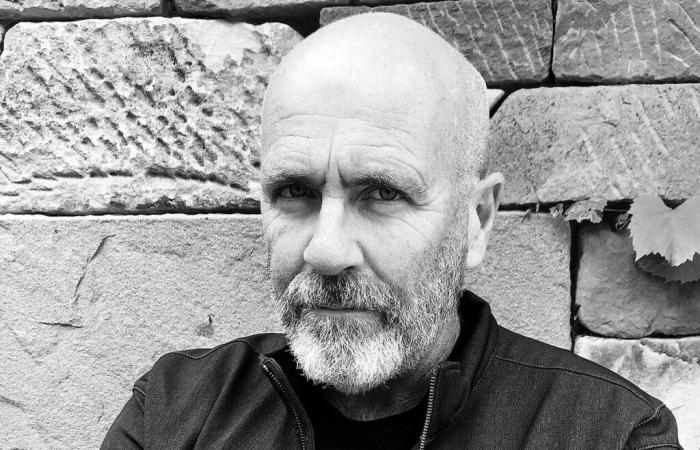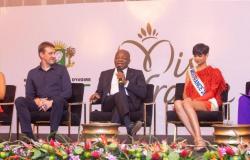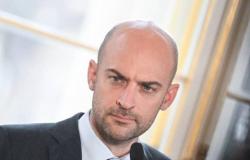This November 19, the 6 members of the jury for the Baillie Gifford Prize for Non-Fiction announced their unanimous verdict. The award thus went to Richard Flanagan for Question 7a ” accomplished reflection on memory, history, trauma, love and death, coupled with an in-depth study of the thread of events that weave an existence », in the words of Isabel Hilton, president of the jury.
In addition to the distinction, one of the most prestigious in the United Kingdom, Flanagan inherited a special status: he became the first Australian author to win this award and the Booker Prize for Fiction, obtained in 2014 for The narrow road to the far north(translated by France Camus-Pichon, Actes Sud).
Finally, Flanagan was to leave with an endowment of £50,000 (approximately €60,000), provided by the sponsor of the prize, to which he also gives his name, the Baillie Gifford investment fund. But he preferred to refuse, inviting the company to “ make public a plan to reduce its already minimal direct investments in fossil fuel extraction and increase funds invested in renewable energies ».
A problematic sponsor?
Speaking at the conclusion of the awards ceremony, via a message recorded a few days earlier, Richard Flanagan apologized for not being able to receive his award in person: he is currently browsing “ the wilds of Tasmania, on foot […]without network and without means of communication ».
The Australian author then takes care to thank the members of the jury and greet the other authors who are finalists for the award. He also does not forget the sponsor, Baillie Gifford, who has stood alongside this British institution since 2016 (the prize itself has been awarded since 1999): “ I also thank the sponsor, Baillie Gifford, for his generous support of this award and for all that he does and has done for literature.» According to Flanagan, the donations and sponsorship of the investment fund “ count […]at a very difficult time for the authors ».
Across the Channel, Baillie Gifford is increasing its financial support for the literary sector, in particular by participating in the financing of numerous book festivals. This very strong involvement in cultural patronage has created controversy in recent months, due to the investments made by the fund.
Following investigations by non-governmental organizations, Baillie Gifford's investments in the fossil fuel industry were noted, along with others, this time directed towards companies linked to the defense and cybersecurity of the State of 'Israel. Between £2.5 and £5 billion have been invested in fossil fuel extraction, according to NGO Urgewald and independent Scottish media The Ferret and almost £10 billion in technology companies whose products are used for Israeli cybersecurity, according to several sources, including Arts Workers for Palestine Scotland.
These investments were considered problematic by several collectives and pressure groups, but also by organizers of British and Scottish literary festivals, who severed ties with Baillie Gifford. The prestigious festivals of Hay, that of Edinburgh, but also of Borders, Wimbledon BookFest, Cheltenham, Cambridge, Stratford, Wigtown and Henley, have distanced themselves from the patron, in fact renouncing substantial financial support. Across the Channel, the Fossil Free Books collective has set itself the mission of distancing the literary world from partners involved in ecocide or operations deemed harmful to the planet.
Nick Thomas, partner at Baillie Gifford, defended himself on the question of support for companies solicited by the State of Israel: “ The claim that we have significant amounts of money in the occupied Palestinian territories is misleading and offensive. Baillie Gifford is a large investor in several multinational technology companies, including Amazon, Nvidia and Meta. Demanding divestment from these global companies, used by millions of people around the world, is unreasonable and serves no purpose. »
Betray “the spirit of my book »
Although he took care to salute Baillie Gifford's commitment to literature, Richard Flanagan nonetheless recalls everyone's responsibility in the face of climate change. “The world is complex. These topics are difficult. No one is blameless. We are all complicit. Major booksellers who sell my books are owned by oil groups, renowned publishers who publish my friends are owned by fascists. » He mentions more particularly his own responsibility, as the author ofQuestion 7. His work questions, in fact, the consequences, sometimes immense, of choices and actions.
If he had not feared the feelings that the young Rebecca West inspired in him, HG Wells, the father of science fiction, would not have fled to Switzerland to write a book in which he imagined, in 1912, a weapon capable of setting the world ablaze… If he had not read this little-known novel, the physicist Leo Szilard would probably never have had the idea, some twenty years later, of a nuclear chain reaction and, terrified through its possible applications, did everything possible to convince Roosevelt to equip his country with the atomic bomb.
If the United States had not bombed Hiroshima and then Nagasaki in August 1945, tens of thousands of people would have survived, but Sergeant Flanagan, a prisoner of war of the Japanese, would certainly have perished and his son Richard would not have been born sixteen years later in Tasmania.Question 7is the virtuoso account, with Sebaldian accents, of a series of events; the masterful and heartbreaking examination of what it means to be alive when so many others are dead.
– The editor's summary forQuestion 7
« My soul would be agitated if I did not point out that the rainforests and heaths where I am camping tonight, unique in the world, are threatened in their very existence by the climate crisis. If I didn't talk about the terrifying impact of fossil fuels on my native island [la Tasmanie, NdR], […] I would betray the spirit of my book”, emphasized Flanagan, who assures thatQuestion 7was sparked by this observation of the disappearance of a world.
READ – To impose peace, boycott Israel's cultural institutions?
He further specifies that his refusal of the grant should not be perceived “as a criticism of Baillie Gifford, but rather the opposite. It is the belief in the good faith of Baillie Gifford and the search for possible improvement. »
According to the jury's statements, cited byThe Guardiantwo other authors who were finalists for the award had requested the withdrawal of their works from the competition, one explicitly pointing out the investments of Baillie Gifford. Viet Thanh Nguyen, finalist, indicated on Instagram that he was donating his endowment of £5,000 (around €6,000) to the We Are Not Numbers association, which organizes writing workshops for young Palestinians in Gaza.
Baillie Gifford's response to Richard Flanagan's gesture was immediate, through the voice of Peter Singlehurst, fund manager for the company. He said, according toABCpurity is an illusion”, adding that “what is being asked of us is impossible ». « The literary world must accept us as we are, or not at all.» The director of the prize, Toby Mundy, assured that he wanted to renew the partnership with Baillie Gifford, which ends in 2026.
Photography: Richard Flanagan, in 2021 (Zamotmum12, CC BY SA 4.0)
By Antoine Oury
Contact : [email protected]






